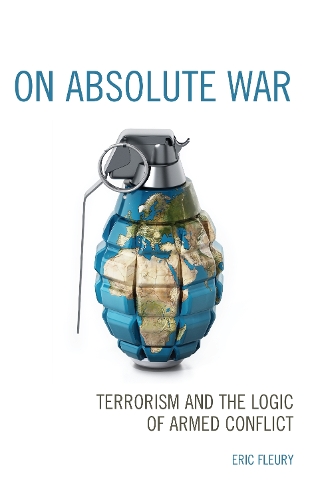
On Absolute War: Terrorism and the Logic of Armed Conflict
(Hardback)
Publishing Details
On Absolute War: Terrorism and the Logic of Armed Conflict
By (Author) Eric Fleury
Bloomsbury Publishing PLC
Lexington Books
15th January 2019
United States
Classifications
Professional and Scholarly
Non Fiction
Political science and theory
International relations
363.325
Physical Properties
Hardback
212
Width 159mm, Height 231mm, Spine 23mm
458g
Description
Nearly two decades after the declaration of a War on Terror, the precise relationship between warfare and terrorism remains unclear. The United States and its allies have long sought to inflict a decisive defeat upon groups such as Al Qaeda and ISIS, while regarding their individual members as malevolent criminals undeserving of combatant status. A clearer understanding of how terrorists define victory, and how their method of fighting relates to conventional military forces, is necessary in order to devise more realistic and effective strategies of counterterrorism. On Absolute War constructs a theoretical framework for the study of terrorism based on Carl von Clausewitzs On War, widely regarded as the greatest analysis of war ever written. Through a review of Clausewitzs work and a set of historical case studies ranging from the Fenian Dynamite Campaign of the 1880s to the wars in Iraq and Afghanistan, Prof. Fleury reveals just how closely terrorism mimics the logic of war. Terrorism attempts to restore war to its theoretical baseline, a condition that Clausewitz called absolute war featuring relentless escalation toward a climactic result. While never achieving this ideal in practice, terrorists succeed to the extent that they compel their enemies and their prospective followers to engage mutual escalation, which will ultimately favor whichever side is better able to jettison logistical and normative limits. Consequently, states must engage terrorists on the basis of Clausewitzs two most important injunctions, namely that war is temporary and subordinate to political controls. Given the very real prospect of a war without any temporal and spatial limits, On Absolute War provides the theoretical basis for a strategy of limiting the effects of terrorism, rather than repeatedly trying and failing to destroy it.
Reviews
Eric Fleurys book is a vital and significant contribution to our understanding of Clausewitz and the application of his thought to terrorism studies. This is an impressive work of scholarship, and a model of how to apply Clausewitzs ideas and principles to a major and lasting strategic problem. The study is the definitive analysis of the topic and should be read by scholars and policymakers concerned with both state and non-state sponsored terrorism. -- Bradley A. Thayer, University of Texas San Antonio
An intelligent and worthwhile treatment of two of military theory's thorniest problems, Clausewitz and terrorism. -- Antulio J. Echevarria, US Army War College
Eric Fleury has given us a rarity of great valuean exploration of Clausewitzian thought that hews to the timeless wisdom of the nineteenth-century philosopher of war while demonstrating its contemporary relevance. Fleurys assured command of Clausewitzs insights shows the reader that a work of scholarship may illuminate the present without being captured by it. The authors perceptive reading of this classic work convinces us that in addition to the regular armed forces, the established government, and the general population, Clausewitz makes room for that most current of figuresthe determined terrorist. -- David Clinton, Baylor University
Author Bio
Eric Fleury is visiting assistant professor at the College of the Holy Cross, Massachusetts.
